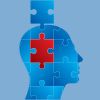test
What’s New?
Brown University Shooting: Mental Health Resources to Support Community RecoveryMass violence, such as the recent shooting at Brown University in Providence, RI, can be extremely stressful and make us feel unsafe and uncertain. CSTS resources will help you know what steps to take that can lower distress and improve functioning for yourself and those around you: Please click HERE for action-oriented fact sheets and additional information to help individuals, communities, and organizations in the aftermath of the shootings at Brown University in Providence, RI. Brain, Behavior, & Mind 2025 Fall LectureBrain, Behavior, & Mind is a series of global forums featuring distinguished scientists, clinicians, and leaders whose work spans neuroscience, psychiatry, psychology, and public health. Each event explores new insights in our understanding of health and illness. Brain, Behavior, & Mind events are sponsored by the CSTS, in collaboration with USU’s Department of Psychiatry, Neuroscience Program, Department of Family Medicine, Center for Deployment Psychology, and Brain and Behavior Hub. Article: Suicidal Behavior in US Army Special Operations ForcesResearch on suicide risk among the U.S. Army’s elite special operations forces (SOF) has been extremely limited, but CSTS's STARRS team aims to bridge that knowledge gap with this new article in JAMA Network Open. CSTS Assistant Scientific Director, Dr. James A. Naifeh, and colleagues examine suicidal behaviors among SOF operators and SOF support personnel during the Iraq and Afghanistan wars. |
Brown University Shooting: Mental Health Resources to Support Community RecoveryMass violence, such as the recent shooting at Brown University in Providence, RI, can be extremely stressful and make us feel unsafe and uncertain. CSTS resources will help you know what steps to take that can lower distress and improve functioning for yourself and those around you: Please click HERE for action-oriented fact sheets and additional information to help individuals, communities, and organizations in the aftermath of the shootings at Brown University in Providence, RI. Brain, Behavior, & Mind 2025 Fall LectureBrain, Behavior, & Mind is a series of global forums featuring distinguished scientists, clinicians, and leaders whose work spans neuroscience, psychiatry, psychology, and public health. Each event explores new insights in our understanding of health and illness. Brain, Behavior, & Mind events are sponsored by the CSTS, in collaboration with USU’s Department of Psychiatry, Neuroscience Program, Department of Family Medicine, Center for Deployment Psychology, and Brain and Behavior Hub. Article: Suicidal Behavior in US Army Special Operations ForcesResearch on suicide risk among the U.S. Army’s elite special operations forces (SOF) has been extremely limited, but CSTS's STARRS team aims to bridge that knowledge gap with this new article in JAMA Network Open. CSTS Assistant Scientific Director, Dr. James A. Naifeh, and colleagues examine suicidal behaviors among SOF operators and SOF support personnel during the Iraq and Afghanistan wars. Texas Flooding Disaster Mental Health Response and Recovery ResourcesCatastrophic natural disasters, such as heavy rainfall and flash flooding across Central Texas, the Hill Country, and Concho Valley cause extreme disruption and can be stressful for individuals, families, and communities. Please click HERE for resources Video: Grief in the area of combat missionsPlease click HERE for War in Ukraine Mental Health Resources Army STARRS: Volume 9 Issue 3, Updated June 23, 2025This document is an ongoing continuous summary of Army STARRS and STARRS-LS publications. STARRS/STARRS LS (2009 - present) is the largest and most comprehensive research project of mental health among U.S. Army Soldiers ever conducted. The project was designed to examine a broad range of risk and resilience (protective) factors across a complex set of outcomes including suicidal behaviors and associated mental health issues. Army STARRS scientists created a series of large and extensive databases with the potential to achieve groundbreaking results. These databases allow scientists to investigate a diverse combination of factors from demographic, psychological, biological, neurological, behavioral, and social domains with the goal of generating actionable findings for the Army. The project was designed using an adaptive approach which means it evolved as new information became available over the course of the project. The research team shared preliminary findings, as they became available, with senior Army leadership so the Army could apply them to its ongoing health promotion, risk reduction, and suicide prevention efforts. The work is continuing under the STARRS Longitudinal Study (STARRS-LS) which runs from 2015 to 2025. |
|
|
Director’s MessageOur Center advances trauma-informed care through cutting edge research, education and training, and resources that draw upon our expertise in military and disaster psychiatry. . . . [more] |
Publications
 |
|
Education and Training
 |
|














